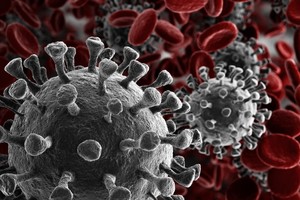UKHSA reminds travellers to China about the risk of avian flu
Following an increase in avian flu cases in humans in China, the UK Health Security Agency (UKHSA) is reminding people travelling to the country to avoid handling produce at wet markets.

UKHSA is also advising travellers to China to alert their GP if they experience any symptoms when they return home.
A record number of human cases with avian flu (H5N6) have been reported from China with onset in 2021, with 22 cases reported in the last 10 months. Before 2021, the largest number of cases of avian flu in China was in 2016 when 9 human cases of infection were reported.
Most cases reported by China have involved close contact with an infected bird (dead or alive). Markets where live birds are sold can also be a source of infection. China has not reported any spread of H5N6 from person to person.
Though the risk to the UK public is very low, UKHSA and the National Travel Health Network are reminding UK travellers to China to protect themselves from avian flu by minimising exposure to wild birds and poultry while in China.
Dr Gavin Dabrera, a Consultant in Acute Respiratory Infections at UKHSA said:
Anyone visiting China should avoid exposure to any birds or live birds in ‘wet markets’ as a precaution.
We continue to encourage people to avoid touching dead or dying birds and maintain good hand hygiene while travelling.
Avian influenza remains a risk in China and if travellers experience any flu like symptoms within 10 days of returning from China, they should call their GP or NHS 111 and report their recent travel.
UKHSA has arrangements in place to deal with emerging diseases. This includes the detection and investigation of suspected cases, and the management of confirmed cases and their contacts.
Travellers can check NaTHNaC’s TravelHealthPro website for current travel health recommendations for:
In light of the rise in cases in China, the UKHSA has reinforced clinical guidance for health professionals in England on the assessment and investigation of patients with severe flu-like illness who have recently returned from China.